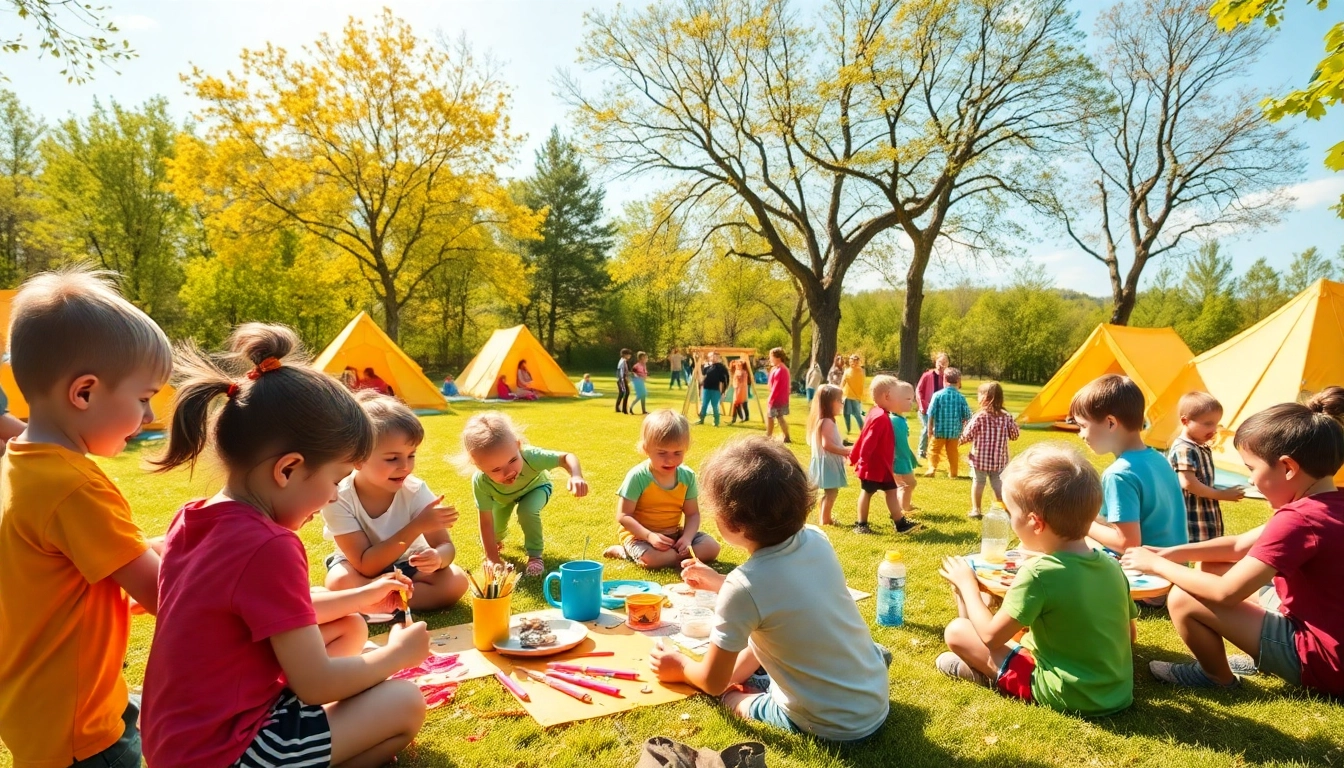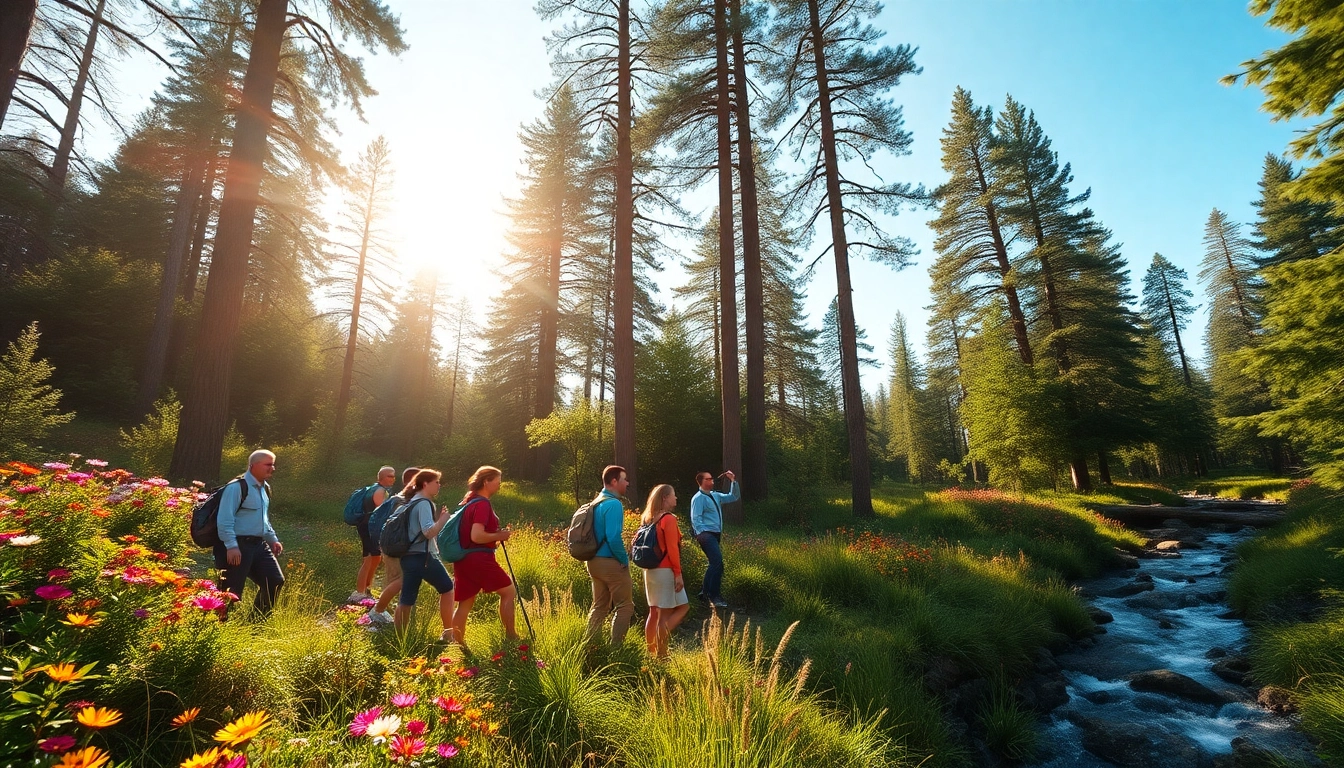Understanding Holiday Camps: What Are They?
Definition and History
Holiday camps are specialized types of accommodations designed primarily for leisure and recreational purposes, often catering to families and children. Positioned predominantly in the United Kingdom, holiday camps create an environment that encourages guests to immerse themselves in the facilities and activities available on-site. Originally established in the mid-20th century, these camps were devised as affordable alternatives to traditional holidays, allowing individuals and families to enjoy a comprehensive array of entertainment and activities without needing to venture far from the campgrounds. The pioneering holiday camps, like Butlins and Pontins, became iconic for providing structured leisure and fun experiences, which have evolved over the decades to include various themed offerings for guests of all ages.
Types of Holiday Camps Available
Today, there are numerous types of holiday camps available to cater to diverse interests and age groups. Some of the most notable categories include:
- Family Holiday Camps: Designed for families, these camps offer comprehensive amenities to appeal to both children and adults. Activities might include family games, workshops, and entertainment designed for all ages.
- Sports and Adventure Camps: These camps focus on physical activity and outdoor adventures, including hiking, rock climbing, and water sports. They promote physical fitness and team-building skills among participants.
- Art and Educational Camps: These camps emphasize creativity and learning. Workshops on art, music, and science are often part of the curriculum, encouraging children to explore diverse interests.
- Specialized Themed Camps: Some camps revolve around specific themes such as technology, performing arts, or wildlife conservation, providing unique and immersive experiences.
Key Features of Holiday Camps
The key features that distinguish holiday camps include:
- All-Inclusive Packages: Most holiday camps offer all-inclusive packages that cover accommodation, meals, and access to various activities. This accessibility allows guests to enjoy a worry-free experience.
- Scheduled Activities: Camps typically provide a structured schedule of activities and events, keeping children engaged and entertained throughout their stay.
- On-Site Entertainment: Most camps feature on-site entertainment that ranges from live performances to recreational activities, ensuring guests always have something to enjoy.
- Safe Environment: Safety is a priority, with trained staff on hand to oversee activities and ensure a safe and enjoyable experience for participants.
Benefits of Holiday Camps for Kids
Skill Development Opportunities
Holiday camps provide various skill-development opportunities that can significantly benefit children. For example, game-based sessions often incorporate problem-solving tasks, helping kids learn to think critically in a fun context. Adventure camps allow participants to develop leadership skills and learn how to work as a team, an essential life skill. Moreover, creative workshops encourage children to express themselves artistically and innovatively, helping to cultivate a well-rounded skill set.
Boosting Social Skills and Friendships
One of the most valuable aspects of holiday camps is the opportunity they provide for children to forge new friendships. Immersed in a collaborative environment, kids engage with peers from diverse backgrounds, learning to communicate, cooperate, and resolve conflicts. This social interaction enhances their emotional intelligence and social skills, laying the foundation for healthy relationships in the future.
Enhancing Creativity and Physical Fitness
Holiday camps also offer programs that foster creativity through arts and crafts, music, drama, and other creative disciplines. These activities allow children to explore their creative potential in diverse forms. Concurrently, physical activities such as sports and outdoor adventures promote physical fitness, teaching kids the importance of leading an active and healthy lifestyle.
Choosing the Right Holiday Camp
Factors to Consider When Selecting
Selecting the right holiday camp requires careful consideration of several factors:
- Age Appropriateness: Ensure the camp is suitable for your child’s age group and developmental stage.
- Interests and Preferences: Consider your child’s interests. For instance, if they love sports, a sports camp would be ideal.
- Reviews and Reputation: Research the camp’s reputation through reviews, testimonials, and ratings, to gauge past experiences reported by other parents and children.
- Location and Facilities: Assess the camp’s location and on-site facilities, ensuring they align with what you deem necessary for a comfortable stay.
Top-Rated Holiday Camps to Consider
Several holiday camps are renowned for their quality programs and excellent experiences. These include:
- Butlins: Known for its family-friendly atmosphere, Butlins offers a wide range of recreational activities and excellent accommodation.
- Pontins: Another longstanding name in UK holiday camps, Pontins features a variety of themed activities that ensure fun for the entire family.
- Camp Sunshine: This camp focuses on various educational programs, combining fun with learning to provide incredible experiences for children.
Evaluating Camp Reviews and Recommendations
When evaluating holiday camps, pay close attention to reviews and recommendations. Trustworthy websites often feature parent testimonials, while social media groups can provide real-time feedback from other campers. Websites like holiday camps often contain lists of top-rated options, easing the decision-making process. Look for camps that highlight safety measures, staff training, and overall satisfaction ratings to ensure a fantastic experience for your child.
Activities and Programs Offered in Holiday Camps
Adventure and Outdoor Activities
Adventure and outdoor activities are defining features of many holiday camps. These may include hiking, zip-lining, rock climbing, and canoeing. These activities not only encourage physical fitness but also instil resilience and problem-solving capabilities as children navigate challenges and work together in teams.
Arts, Crafts, and Educational Programs
Creativity is nourished through arts and crafts, where children can participate in painting, sculpture, and performance arts. Educational programs often supplement recreational activities with workshops in science, technology, reading, and mathematics in engaging formats, cultivating a love for learning through fun and interactive methods.
Sports and Team-Building Events
Sports are fundamental in most holiday camps, offering a variety of team-building events such as soccer, swimming, and obstacle courses. These activities develop not only physical abilities but also critical lifelong skills such as teamwork, collaboration, and sportsmanship, ensuring that children leave the camp with cherished memories and invaluable lessons.
Making the Most of Your Holiday Camp Experience
Preparing for the Camp: Essentials to Pack
Proper preparation is crucial for a positive camp experience. Parents should pack essentials such as comfortable clothing for various weather conditions, toiletries, sun-block, and special items like electronic devices, if permitted. Additionally, bring along personal comfort items such as favorite toys or blankets to help children feel secure in the unfamiliar environment.
Tips for Parents: Communication and Engagement
Strong parental support plays a vital role in a child’s camp experience. Maintain open communication with your child about what they can expect at camp, and encourage them to express any fears or anxieties. Additionally, remind them about camp rules, schedules, and norms to help ease transitions into the camp environment.
Post-Camp Activities to Continue the Fun
Once camp is over, keep the excitement alive by planning follow-up activities at home. Engage children in activities resembling those at camp, such as arts and crafts or family sports events. This not only helps reinforce skills learned at camp but also fosters continued bonding and enjoyment among family members. Consider arranging playdates with friends from camp to help maintain social connections formed during the experience.



